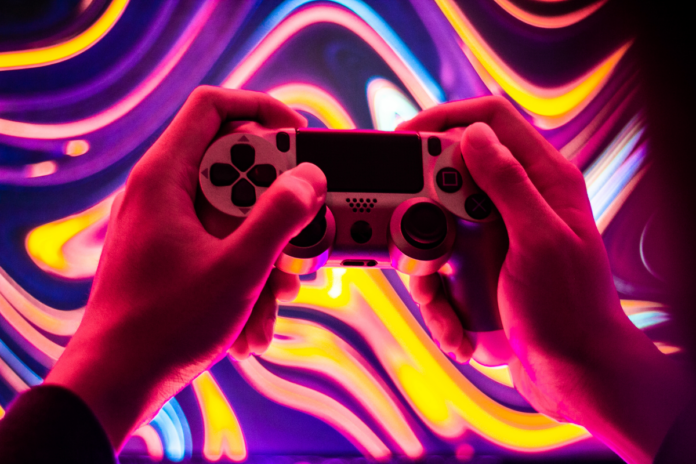Just a few years ago, video games were a niche hobby. But in recent years, they have come to become a mainstream form of entertainment, enjoyed by millions around the world. And with that rise, video games have started to influence fashion in unexpected ways. Major brands are taking inspiration from gaming when designing clothing lines, and accessories are being marketed with gamers in mind.
So, yes, video games can become fashion, and it has. Gaming imagery has appeared on runways and this rise points to a future where our virtual avatars may be just as stylish as our real wardrobes.
How Gaming Culture Became Mainstream

Image Credit: Wikipedia
Gone are the days when liking video games instantly marked someone as a social outcast. The idea of “geek chic” has allowed interests like gaming, once viewed as nerdy, to become acclaimed parts of mainstream culture. Multi-billion dollar game franchises like Pokémon and Final Fantasy have worldwide recognition on par with major film or sports franchises.
This newfound popularity has broken down barriers, with collaborations between gaming brands and fashion houses becoming increasingly common. Luxury brand Louis Vuitton created outfits based on League of Legends characters for a 2019 capsule collection. Avant-garde designers like Alexander McQueen and Jeremy Scott have sent bold looks down runways featuring prints of Pac-Man and other gaming symbols.
How Gaming Fashion Hit the Catwalk

Image Credit: Starbreeze Entertainment
Many designers today integrate subtle gaming themes rather than overtly cosplay-inspired looks. Alexander McQueen’s latest collection features abstract prints of classic game graphics like Space Invaders and Pac-Man. Jeremy Scott incorporates 8-bit graphics into streetwear for Moschino. Even premium labels like Gucci add gaming easter eggs like controller symbols or Pokemon references to luxe bags or shoes.
“Gaming lets us tap into a sense of nostalgia and comfort while still feeling modern”
These examples as well as the shift towards more practical-looking game-inspired outfits, according to CyberGhost show gaming’s aesthetic escaping niche communities and entering mainstream style.
But directly adapting a heavily stylized character like Sonic or Lara Croft into wearable form can prove an ambitious challenge.
What are the Promise and Risks of Virtual Fashion

For some innovators, the solution means bypassing physical clothing entirely. In digital spaces like Fortnite where virtual outfits reign supreme, “skins” generate over a billion dollars annually.
“Virtual fashion allows self-expression without inventory limits or waste”
Yet virtual garments raise tough questions around originality and ethics. Some designers like Slooten advocate using blockchain technology to protect unique digital-only pieces. But limited interoperability between virtual worlds hinders gamers from sporting their carefully curated looks across titles.
The Rise of Fashionable Gaming Gear

Image Credit: AudioViser
While not as avant-garde, the bridge between gaming and fashion can also be seen in the rise of accessories targeted at gamers concerned with both form and function. Backpacks meant for carrying gaming laptops and consoles come in sleek designs and bold colors. Headphones from brands like Razer blend quality audio with standout aesthetics like customizable RGB lighting.
Loungewear and athletic apparel get a gaming spin, with tracksuits and hoodies optimal for staying comfortable during long play sessions. The market for gear that works for gaming but also looks good continues to expand.
Will Gaming Fashion Ever Go Mainstream?
While still niche, gaming fashion has progressed beyond stereotypical branded tees. Collaborations with major fashion houses lend legitimacy to gaming-inspired lines.
As esports competitors become celebrities in their own right, their team merchandise gains a following. Customization also appeals—who wouldn’t want shoes as unique as their personalized Xbox avatar? More accessibility is still needed, but indie designers are pushing boundaries. If wider audiences embrace gaming’s creative side, we could see game-changing looks on sidewalk catwalks.






